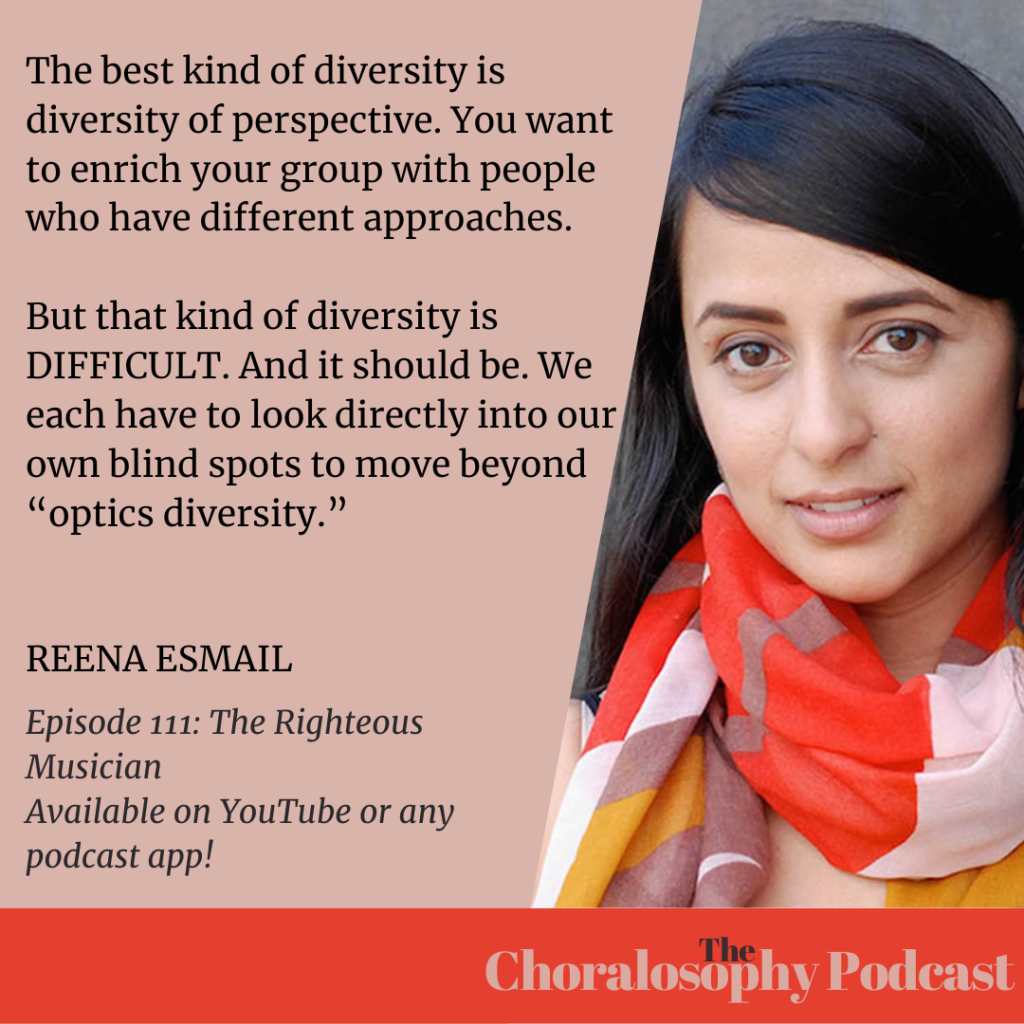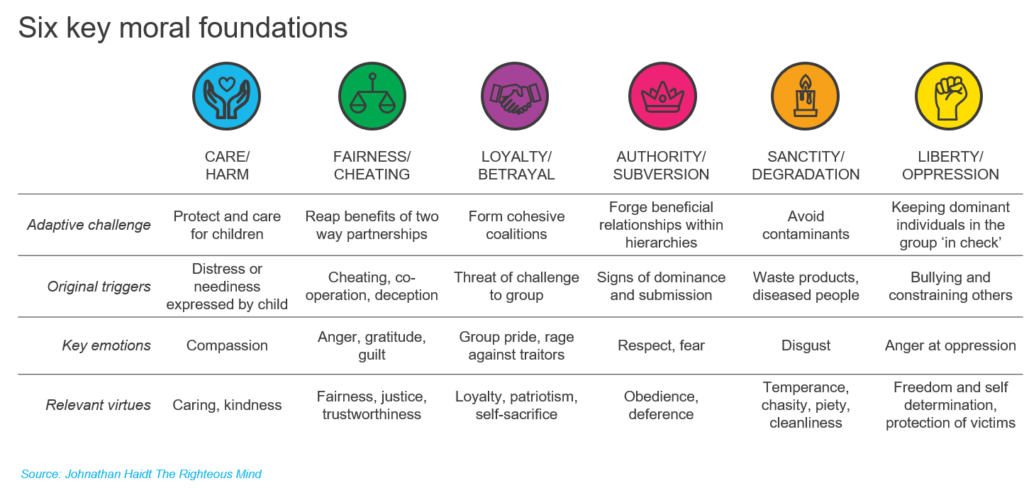True diversity is the varied life experiences and cultural upbringings that lead us to our widely disparate moral “palettes.” As we gather together in classrooms, ensembles, businesses and organizations we talk a good diversity game. But rarely do we attempt to measure these things in our diversity matrix. This episode is a “Choralosophy Book Club” discussion about a book that gives us the tools to do just that.
Reena Esmail returns to the show to discuss the book “The Righteous Mind: Why Good People Are Divided by Politics and Religion” by Psychologist Jonathan Haidt. If you are interested in how YOUR mind brings you to your decisions about right and wrong, about good and evil and much more, then this book and this conversation is for you. Western philosophy has emphasized reason and logic over emotions for thousands of years. This tendency still prevails, but a growing body of research proves that emotions should no longer be regarded as secondary to logic.
Moral judgments arise from our intuitions because humans are fundamentally intuitive, not rational. In addition, the reasoning that follows our intuitions does not work like a judge, guiding us to sober moral wisdom. It works more like a lawyer, justifying our moral judgments to others and ourselves, supporting our reputation and our self-interest.
You can listen from the widgets below which will take you to Apple or Castbox to finish listening, or you can find the show on Google Play, Spotify, Youtube or Stitcher!
If you want to persuade others, appeal to their sentiments.
If you want to win a moral argument, never say “you’re wrong.” You can never win someone over to your principles through purely rational arguments. Instead, if you want to persuade the other person, first of all smile and be a good listener. THIS is being an effective ensemble member, teacher and EVEN the path forward for more effective political activism. But it only works if you are genuinely able to hold the possibility that it could have been YOU that was wrong all along. Or, that there was never a “right” answer to be found anyway.
Indian-American composer Reena Esmail works between the worlds of Indian and Western classical music, and brings communities together through the creation of equitable musical spaces.
Esmail’s work has been commissioned by ensembles including the Los Angeles Master Chorale, Kronos Quartet, Imani Winds, Richmond Symphony, Town Music Seattle, Albany Symphony, Chicago Sinfonietta, River Oaks Chamber Orchestra, San Francisco Girls Chorus, The Elora Festival, Juilliard415, and Yale Institute of Sacred Music. Upcoming seasons include new work for Seattle Symphony, Baltimore Symphony Orchestra, Santa Fe Desert Chorale, Amherst College Choir and Orchestra, Santa Fe Pro Musica, and Conspirare.
Esmail is the Los Angeles Master Chorale’s 2020-2023 Swan Family Artist in Residence, and Seattle Symphony’s 2020-21 Composer-in-Residence. Previously, she was named a 2019 United States Artist Fellow in Music, and the 2019 Grand Prize Winner of the S & R Foundation’s Washington Award. Esmail was also a 2017-18 Kennedy Center Citizen Artist Fellow. She was the 2012 Walter Hinrichsen Award from the American Academy of Arts and Letters (and subsequent publication of a work by C.F. Peters)
Esmail holds degrees in composition from The Juilliard School (BM’05) and the Yale School of Music (MM’11, MMA’14, DMA’18). Her primary teachers have included Susan Botti, Aaron Jay Kernis, Christopher Theofanidis and Martin Bresnick, Christopher Rouse and Samuel Adler. She received a Fulbright-Nehru grant to study Hindustani music in India. Her Hindustani music teachers include Srimati Lakshmi Shankar and Gaurav Mazundar, and she currently studies and collaborates with Saili Oak. Her doctoral thesis, entitled Finding Common Ground: Uniting Practices in Hindustani and Western Art Musicians explores the methods and challenges of the collaborative process between Hindustani musicians and Western composers.




Leave a Reply
You must be logged in to post a comment.